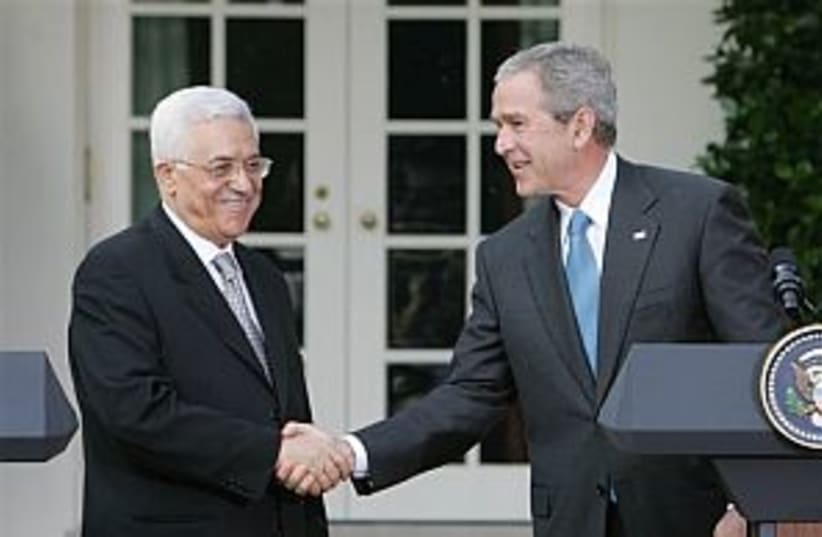| More about: | Israel, George W. Bush, Mahmoud Abbas, Palestinian National Authority |
Israel rejects PA offer of secret talks
Gov't source: Proposal aims to circumvent road map before fighting terror.


| More about: | Israel, George W. Bush, Mahmoud Abbas, Palestinian National Authority |